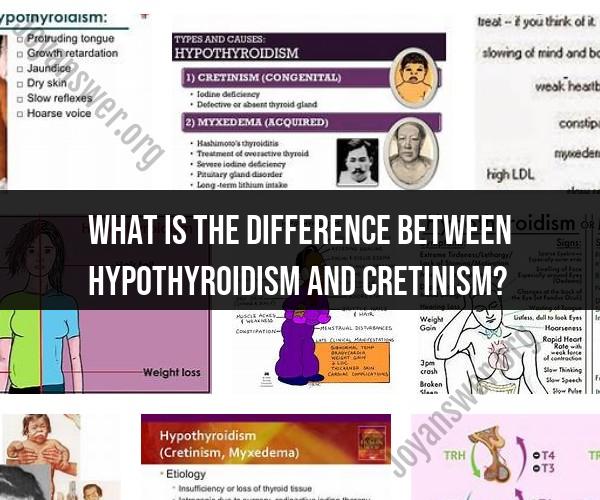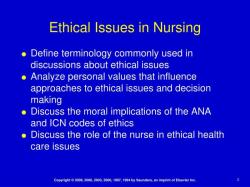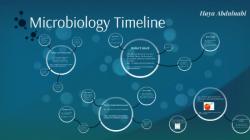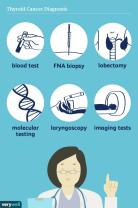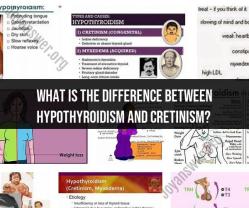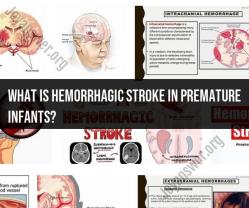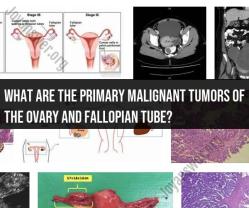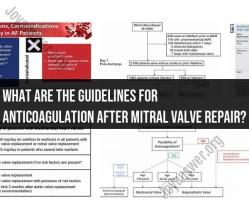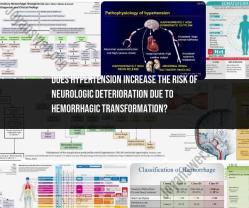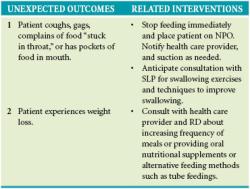What is the difference between hypothyroidism and cretinism?
Hypothyroidism and cretinism are both conditions related to the thyroid gland, but they differ in several key aspects, including their causes, symptoms, and timing of onset. Here's an explanation of the distinct differences between these two thyroid-related conditions:
Hypothyroidism:
Definition: Hypothyroidism is a condition where the thyroid gland does not produce enough thyroid hormones, primarily thyroxine (T4) and triiodothyronine (T3).
Causes: It can be caused by a variety of factors, including autoimmune diseases (such as Hashimoto's thyroiditis), thyroid surgery, radiation therapy, certain medications, and iodine deficiency.
Symptoms:
- Fatigue and weakness
- Weight gain
- Cold intolerance
- Dry skin and hair
- Constipation
- Muscle aches and joint pain
- Slow heart rate
- Depression and cognitive impairment
- Menstrual irregularities
Onset: Hypothyroidism can develop at any age and may have a gradual onset, with symptoms worsening over time.
Cretinism:
Definition: Cretinism is a severe form of congenital hypothyroidism that is present at birth. It results from the underdevelopment of the thyroid gland or a complete absence of the gland.
Causes: Cretinism is primarily caused by genetic factors, including genetic mutations or a lack of thyroid tissue during fetal development. Iodine deficiency in the mother during pregnancy can also contribute to cretinism.
Symptoms:
- Severe intellectual and developmental disabilities
- Physical deformities, such as short stature, coarse facial features, and a protruding tongue
- Delayed tooth development
- Umbilical hernia
- Hearing and speech impairments
- Delayed motor skills
Onset: Cretinism is present at birth and is typically evident shortly after birth or in early infancy. The symptoms are severe and profound, affecting both physical and cognitive development.
Key Differences:
Timing of Onset: Hypothyroidism can develop at any age and may have a gradual onset, while cretinism is a congenital condition present from birth.
Causes: Hypothyroidism has various causes, including autoimmune factors and medications, while cretinism is primarily caused by genetic factors or iodine deficiency during pregnancy.
Symptoms: Cretinism is characterized by severe intellectual and physical disabilities, whereas hypothyroidism in adults typically presents with milder symptoms related to metabolism and energy regulation.
Treatment: Both conditions are treated with thyroid hormone replacement therapy. Hypothyroidism can often be managed effectively with medication, while cretinism requires early diagnosis and treatment to prevent severe developmental and intellectual disabilities.
In summary, hypothyroidism is a condition of insufficient thyroid hormone production that can occur at any age and has various causes. Cretinism, on the other hand, is a severe congenital form of hypothyroidism that is present from birth and results in profound intellectual and physical disabilities. Early diagnosis and treatment are crucial for individuals with cretinism to minimize developmental impairments.
